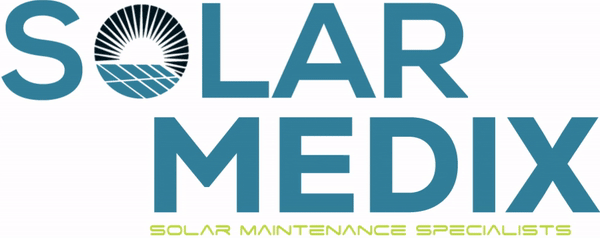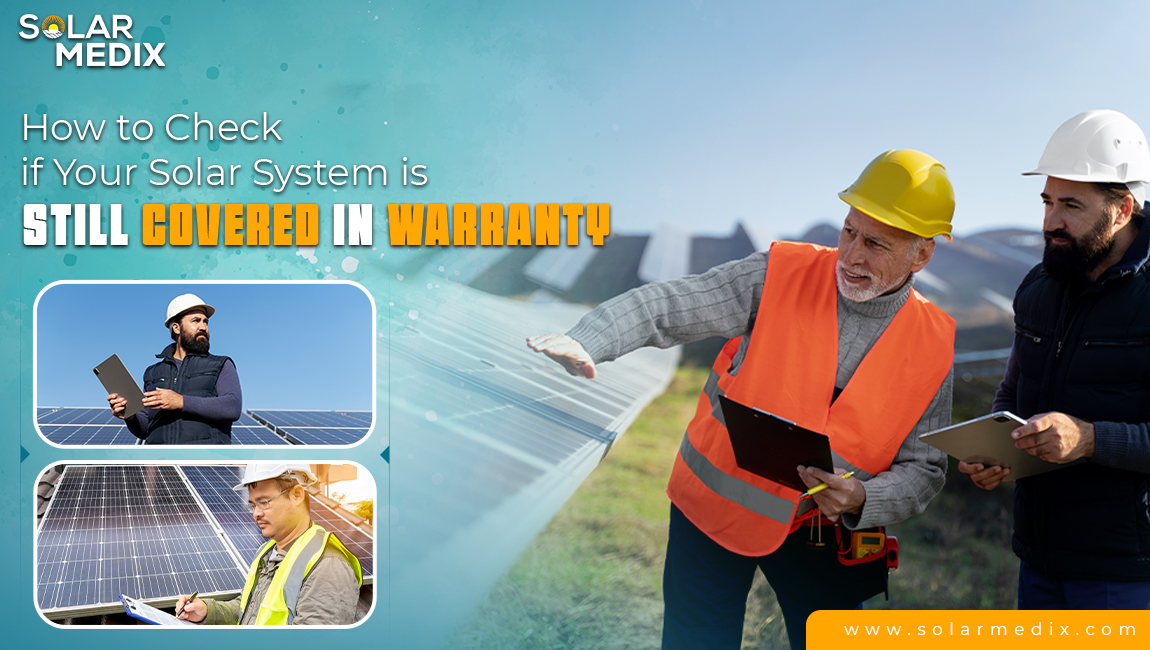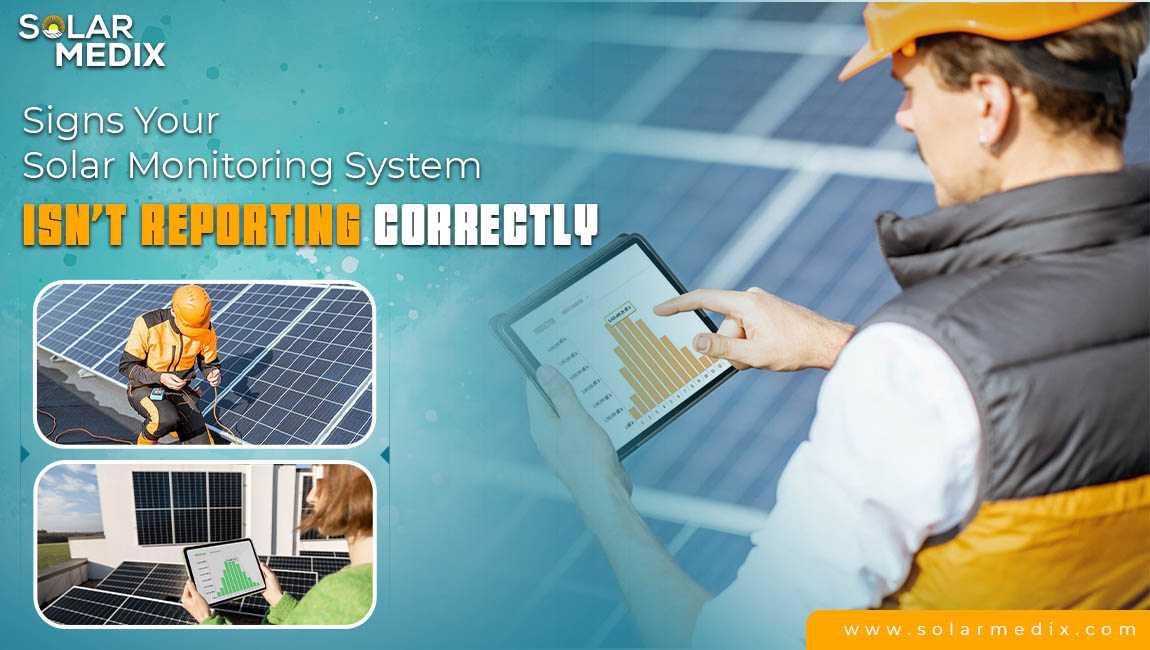Solar panels are expected to have a functional life of 25-30 years, but what if they start to lose efficiency beforehand? This is an issue not only for you but for many homeowners and businesses looking to invest in renewable energy; the longevity of solar panels is a big concern. After all, who wants their clean energy system to go bad before its expiration date?
Average-performing solar panels degrade at about 0.8% per year. According to the study by the National Renewable Energy Laboratory (NREL), solar panels would still be able to deliver energy at more than 80% of their original power generation 25 years after installation. This stresses the need for yearly maintenance to ensure they remain in good working order even years after. Knowing what influences the lifespan of your solar system and how to care for it is crucial for maximizing your investment.
Solar Medix offers preventive maintenance, inspections, and updates to ensure your solar panels operate at full capacity. In this article, we’ll highlight all the variables that affect their lifespan, how to know when your system might be failing, and what you can do to fix the problems before it’s too late.

Why the Lifespan of Your Solar Panels Matters
Solar panels are generally considered to have a life span of 25 to 30 years, but that doesn’t mean you can ever install them and forget about them for that long. If the system is not well maintained, the performance can degrade over time, and it may not perform to its peak capacity. Here’s why it matters:
- Cost Efficiency: Solar panels require substantial investment, and extending their lifespan leads to better ROI from energy production and diminishes the overall cost per watt.
- Maximized Energy Output: Clean, efficiently operating panels generate more energy, help lessen reliance on the grid, and reduce energy costs.
- Environmental Impact: The longer solar panels last, the more sustainable the energy future will be.
From routine inspections to timely upgrades, at Solar Medix, we work alongside homeowners and businesses to extend the life of your solar system.
So, now let’s explore what influences the lifespan of solar panels.
Note: Wondering how long solar panels last and what you can do to keep them running as long as possible? Check out our recent blog post, “Solar Panel Lifespan: How Long Can Solar Panels Last?” for some professional recommendations on how to maximize the longevity and performance of your solar system.

7 Key Factors That Affect Solar Panel Lifespan
Solar panels are crafted to endure decades of solar radiation. However, there are various other elements that dictate the lifespan of a solar panel. Understanding these can enable you to strategize on how to best protect your system.
- Quality of Installation
- Climate and Weather Exposure
- Type and Brand of Solar Panels
- Level of Ongoing Maintenance
- Inverter Efficiency & Monitoring Systems
- Dust, Debris, and Pollution
- Shading from Trees or Structures
1. Quality of Installation
Solar panels can only work if they are properly set up and installed. Badly mounted panels, incorrectly wired panels, or panels placed under other environmental stressors will degrade faster.
- Proper Alignment and Angle: Panels need to be angled the right way (ideally, south) to absorb the most sunlight.
- Secure Mounting: A properly mounted system prevents physical damage and keeps your panels from becoming airborne during high winds and storms.
- Avoiding Water Ingress: A poor system setup can cause water to seep into the panels, which can corrode them.
2. Climate and Weather Exposure
Extreme weather conditions can be one of the main concerns with solar panel longevity.
- High Temperatures: Excessive heat can decrease operational efficiency and accelerate the degradation process.
- Freezing Conditions: Accumulations of snow and ice can put physical strain on the panels, possibly even resulting in cracks.
- Severe Storms: Falling hail, wind, and debris can physically damage panels, making them look unattractive and, worse, less efficient.
3. Type and Brand of Solar Panels
Solar panels aren’t all the same. How long it lasts can depend on the type of panel and the materials used.
- High-Quality Panels: Higher-quality solar panels are likely to last a significantly longer time on average.
- Warranty: Extended warranty (such as 25 years) panels tend to be built more durably, as manufacturers feel more confident that their products will last.
4. Level of Ongoing Maintenance
A solar system that is maintained well has higher chances of prolonged life expectancy and efficiency.
- Regular Cleaning: Bird droppings, dust, and dirt can build up on panels and obstruct sunlight. Regular cleaning will keep them working optimally.
- Timely Repairs: Problems like cracked panels or a loose wiring board can develop into more serious issues if you don’t repair them on time.
5. Inverter Efficiency & Monitoring Systems
An inverter is the most prominent component of your solar system. It converts your panels’ DC (direct current) electricity into usable AC (alternating) electricity. The entire system will be compromised if the inverter is not operating optimally.
- Inverter Lifespan: The inverters typically last 10-15 years, so they’ll need to be replaced before the panels.
- Monitoring Systems: Real-time monitoring gives an individual the ability to limit the loss of performance and alert them to the underlying problems prior to the situation escalating further.
6. Dust, Debris, and Pollution
Contaminants, including dirt, dust, and debris on your panels, can dramatically decrease energy production. In cases where an individual resides in a dusty pollution zone, the individual could be required to clean the panels more frequently.
- Airborne Dust: Dust can build up on panels, especially in dry environments, preventing sunlight from passing through and decreasing efficiency.
- Pollution: Panels in urban areas can be coated with dirt from pollution, which lessens their ability to produce power.
7. Shading from Trees or Structures
Shading can severely affect the performance of your solar panels. Even partial shading can produce substantial energy losses.
- Tree Overgrowth: Trees growing around the panels can obstruct sunlight and cut down energy production.
- Buildings and Other Structures: Take notice of any new buildings or changes in the area that may cast increasing shade.

5 Signs Your Solar Panels Are Wearing Out Too Soon
Solar panels may show signs of wear and tear, even when they have been adequately maintained. Knowing these signs in advance lets you fix issues well before they become expensive.
- Declining Energy Output
- Spikes in Energy Bills
- System Errors or Alerts
- Physical Cracks or Hot Spots
- Poor Inverter Performance
1. Declining Energy Output
If your solar system generates less energy than when it was installed, that’s a sign that something is wrong.
- Energy Monitoring: Regularly monitor your energy output through your monitoring system.
- Comparing Output: Compare the current output with past data to determine if there has been a significant drop in output performance.
2. Spikes in Energy Bills
If your energy bills are rising unexpectedly, it could mean that your solar system is not performing as well as it should.
- System Underperformance: Reduced efficiency means you are drawing more power from the grid.
- Energy Monitoring Data: Implement monitoring tools to track discrepancies in energy usage.
2. Spikes in Energy Bills
If your energy bills are rising unexpectedly, it could mean that your solar system is not performing as well as it should.
- System Underperformance: Reduced efficiency means you are drawing more power from the grid.
- Energy Monitoring Data: Implement monitoring tools to track discrepancies in energy usage.
3. System Errors or Alerts
Most modern solar systems have monitoring tools that alert you to performance issues.
- Error Messages: If your system regularly displays error messages, it may indicate underlying performance issues.
- Regular Alerts: Configure your monitoring system to notify you of any performance issues.
4. Physical Cracks or Hot Spots
Cracks or overheating spots on solar panels indicate that your solar panels are deteriorating.
- Cracks or Chips: Make it a habit to check your panels for visible damage.
- Hot Spots: If you notice any areas that feel unusually warm, it may indicate internal damage.
5. Poor Inverter Performance
When panels are in peak condition but inverters fail, the system’s overall performance can be compromised.
- Frequent Shutdowns: If your inverter gets turned off repeatedly, it can mean that it requires replacement.
- Error Codes: Check your inverter for error codes and replace it if necessary.

Solar Maintenance | The Key to Maximizing Solar Panel Lifespan
A report issued by Grand View Research states that the global solar panel market is expected to rise at 20.5% compound annual growth rate from 2021-2028, as the world becomes more accepting of the technology and continued panel technology innovations are expected to produce more powerful, longer-lasting and more efficient solar panels in the near future. Proper maintenance of the solar system is a must for its optimum performance for a long time.
- Regular Cleaning
- Professional Inspections
- Component Replacements
- Bird/Pest Deterrent Solutions+
- Panel Repositioning or Removal & Reinstall
1. Regular Cleaning
Cleaning your panels helps reduce dust, dirt, and debris that can block sunlight. This simple maintenance task can enhance efficiency and increase longevity.
- Soft Brushes: Avoid all stiff cleaning materials that can scratch your panels.
- Frequency: Depending on local conditions, you should clean your panels every 6 to 12 months.
2. Professional Inspections
Routine professional inspections detect minor issues before they become major problems, so your system can run smoothly.
- Certified Technicians: Professionals are always capable of spotting underlying issues with the system, like wiring problems or microcracks.
- Timely Upgrades: Inspections also allow for timely upgrades of components, including inverters or batteries.
3. Component Replacements
Components such as inverters or wiring may need replacing to maintain the best operation and efficiency of your system.
- Inverter Replacement: An inverter generally needs replacement every 10–15 years.
- Wiring & Mounts: Over the years, the wires can get weak, and the mounting systems may require an upgrade to provide the right support.
4. Bird/Pest Deterrent Solutions
Birds and other pests can cause damage to your panels, especially if they choose to make nests around or underneath them.
- Netting or Traps: Use bird deterrents to protect against damage from nests.
- Regular Checks: Periodically inspect the area surrounding your panels for pests or debris build-up.
5. Panel Repositioning or Removal & Reinstall
If your system isn’t performing as it should, relocating panels to harness more sunlight or even reinstalling them could fix the problem.
- Repositioning for Optimal Sunlight: Adjust your panels towards the sun.
- Reinstalling After Roof Work: If you are having your roof replaced, make sure your panels are being removed and reinstalled safely to avoid damage.

How Solar Medix Extends the Life of Your Solar System
Solar panels are a considerable financial commitment in your energy future, and you will obviously want to make sure they last for their maximum legitimate life so you can get the most out of your investment. However, their lifespan depends on a number of factors, including installation quality, climate, maintenance, and component health.
At Solar Medix, we understand the importance of maintaining your system to keep it functioning efficiently and increase its lifespan. Therefore, we offer routine inspections, services, upgrades when needed, and preventive maintenance that can help you get the most out of your solar system for decades. If you notice any sign of performance degradation, or simply want the reassurance that your solar panels are not just “working”, but actually working effectively for you, no need to wait – contact Solar Medix today!
If you want your solar system to be healthy and functional, our certified tech team is at your service to assist you with their expertise. Our goal is to bring your solar system up to peak performance and keep it that way for the length of its usable life.
Our expert services include:
- Professional Inspections: We perform expert inspections to identify errors that can influence performance.
- Routine Cleanings: Our experts will regularly clean your panels to clear away dirt and debris, so they can continue to work at peak efficiency.
- Component Replacements: To keep your system performing optimally, we can replace the inverters, wires, or mounts as needed.
- Bird/Pest Deterrents: We provide guidance on the implementation of bird and pest control measures.
- Panel Repositioning: We adjust your panels for optimal sun exposure, if needed.
Call (732) 474-1748 or visit our website for a free consultation today! We can help you prolong the grim of your solar system. Don’t wait for the minor issues to escalate to major ones; get action now and keep your solar system running smoothly for years!
FAQs
There are a number of factors that affect how long solar panels last, including the quality of installation, the conditions of the local climate, maintenance, exposure to various elements, and the quality of the individual panels.
Solar panels need periodic cleaning, inspections, and component replacement (inverters, for example) every few years to work properly.













